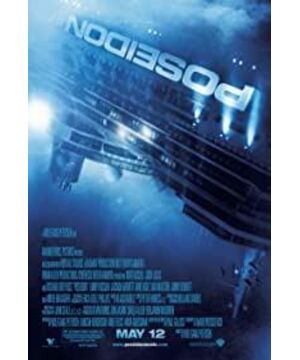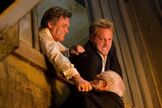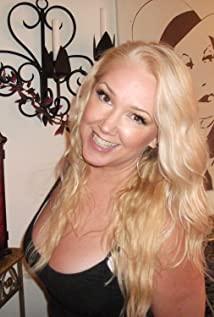The story
"Poseidon (Poseidon)" is a super luxury cruise ship with a height of 20 floors and 13 decks. On a New Year's Eve, it encountered a huge tsunami in the North Atlantic Ocean. Waves, hundreds of feet high, knocked the cruise ship upside down.
Dean, a professional gambler, decides not to stay in the lobby and wait for rescue, but to find a way out on his own. A 9-year-old boy begged him to take him and his mother Mech to escape. Brian, a former firefighter and mayor of New York, is also desperately searching for his daughter Jennifer and her fiancé. The group also included Northam, an old architect who wanted to commit suicide. Aina, a young girl who didn't have the money to get on the boat, helped Jennifer and others who were trapped in the ballroom...
Dean became the interim leader, and his correct response brought extremely important psychology to the group support. The sacrifices of Brian and others made a way for the small group to survive in the dark, cold water and broken wreckage. In the end, 6 survivors came to the water after crossing many obstacles and were rescued in time.
Compared with "Titanic", the Hollywood disaster blockbuster "Poseidon", which was released in China on June 2, can better describe people with different personalities and outline how they constantly balance social norms and personalization in a state of catastrophe. Self-concept, external behavior, so as to effectively help others in special circumstances.
From "Titanic", "Perfect Storm", "The Day After Tomorrow", to "Poseidon", to the hit American TV series "Lost", almost no film shows a disaster that is a complete natural disaster. There is no film that fails to provoke audiences to ponder deeply about the psychology of cataclysm.
Experts crack
the post-disaster mutual aid spirit is beautiful and short-lived
Tsunami is a strong stimulus, which will cause people's psychological and behavioral reactions, and instinctively reflect their different personality traits.
Active personality can make more correct choices.
Northam was deceived by his friends and his wife left him. He wanted to commit suicide. When he saw the tsunami swept in, he was terrified. on site. These reactions are very consistent with his passive personality trait of "passive escape from a downtrodden situation".
Northam, who had just been separated from death, cherished his "just harvested life" even more, but his strong belief in survival led him to choose the instinct of self-interest. A moment of necessity: ignoring the pleadings of the young crewman, kicking his hand away to save himself.
Unlike him, there is also a group of people who show proactive personality traits when disaster strikes: stick to their posts and rescue others.
The captain asked Brian to give up rescuing his daughter and stay with most of the surviving people. It was out of his instinct to help others. He was a person who insisted on his post, kept the survivors calm, and let everyone help each other.
Different from the proactive personality of the captain who seems to be proactive in helping others, but is actually "waiting to die", Brian's instinctive proactive personality is as follows: he only chooses the person who feels he should help the most at that time - his daughter. It is his active and correct response in special circumstances that has brought extremely important encouragement to others.
In addition to Brian, who is looking for his daughter, there is also Jennifer, the mother who is trying to help her son escape, and Jennifer who rescues and protects her beloved. They "guard" their "posts" as mothers, fathers, and lovers. rescue others on the "post"
"Anomie effect" during disasters: people get rid of their previous behavioral norms. Under certain catastrophe circumstances, people's social psychology has undergone different changes than usual. One of them is the "anonomous effect". The abnormal situation in "Poseidon" made it difficult for the escaped small groups with different personalities to adopt the behaviors they were accustomed to before, so they had to get rid of the previous behavioral norms and seek new norms. This is "mutual help and common action" that is conducive to "everyone survive". The first behavior that conforms to these norms becomes the norms that are recognized and accepted within the group. The person who is the first to get rid of previous norms of behavior becomes the leader of the group. Dean is a person with a strong sense of self-protection and strong egoism. When the tsunami first happened, he just wanted to escape alone. Dean first pulled away from his "self-help" instinct after seeing the mother Mech, who was begging to help the child escape, and witnessing the constant loss of members of the survival team. He encouraged members to live with confidence, forcing everyone to take positive action. As a leader, Dean's positive hints and encouragement are the most important conditions for the survival of the survival team. With his correct response, Brian, who has rich firefighting and leadership experience, also threw himself into helping others, from loving his own children, to loving others' children, and finally sacrificing himself to save the entire small team. Mutual aid can last up to one month during disasters. Under special conditions, the prosocial behaviors that individuals show are often very limited, and they cannot be real altruistic behaviors. That kind of group consciousness-enhancing life pattern generally only exists for a few days or ten days, and the longest does not exceed a month. Moreover, the larger the group size, the shorter the time of existence. In the first half of "Lost", the lucky passengers who survived were similar to "Poseidon", showing a tendency to weaken self-consciousness and strengthen group consciousness. Over time, however, the group-consciousness-enhancing pattern of life also quickly fades. People reverted to their habitual and internal and external (socialized and individualized) balance of behavior.
The short and thrilling plot of "Poseidon" shows the "anomex effect" vividly. The people in "Lost" made all kinds of efforts to maintain it, but the "anomesis effect" gradually disappeared. If "Poseidon" is adapted into a TV series, maybe we can see the "true face" of the hero Dean.
Further reading
"Lost" is a popular American drama series about a passenger plane crashing on an island in the Pacific Ocean, and 48 passengers survived. They are of different nationalities, races, cultural backgrounds and personalities. They have fathers and sons, husbands and wives, prisoners, doctors, friends and enemies. They have to overcome harsh weather, search for food and water in the wild tropical jungle, and face the threat of mysterious creatures. What is more difficult is that they must overcome their personal desires, overcome barriers, work together in the same boat, and strive for survival.
Glossary
Prosocial behavior and altruism
Refers to all behaviors that benefit others and society, such as helping others, sharing, humility, cooperation, self-sacrifice, etc.
Prosocial behavior can be caused by altruism. Altruism refers to caring for the interests of others without regard to one's own. Altruistic behavior is characterized by volunteering to help others without the expectation of any external reward, not even the idea of "doing good" or making a good impression.
Prosocial behavior is not necessarily caused by altruism, it also includes intentional helping behavior for a certain purpose, so it is a broader concept than altruistic behavior.
View more about Poseidon reviews










